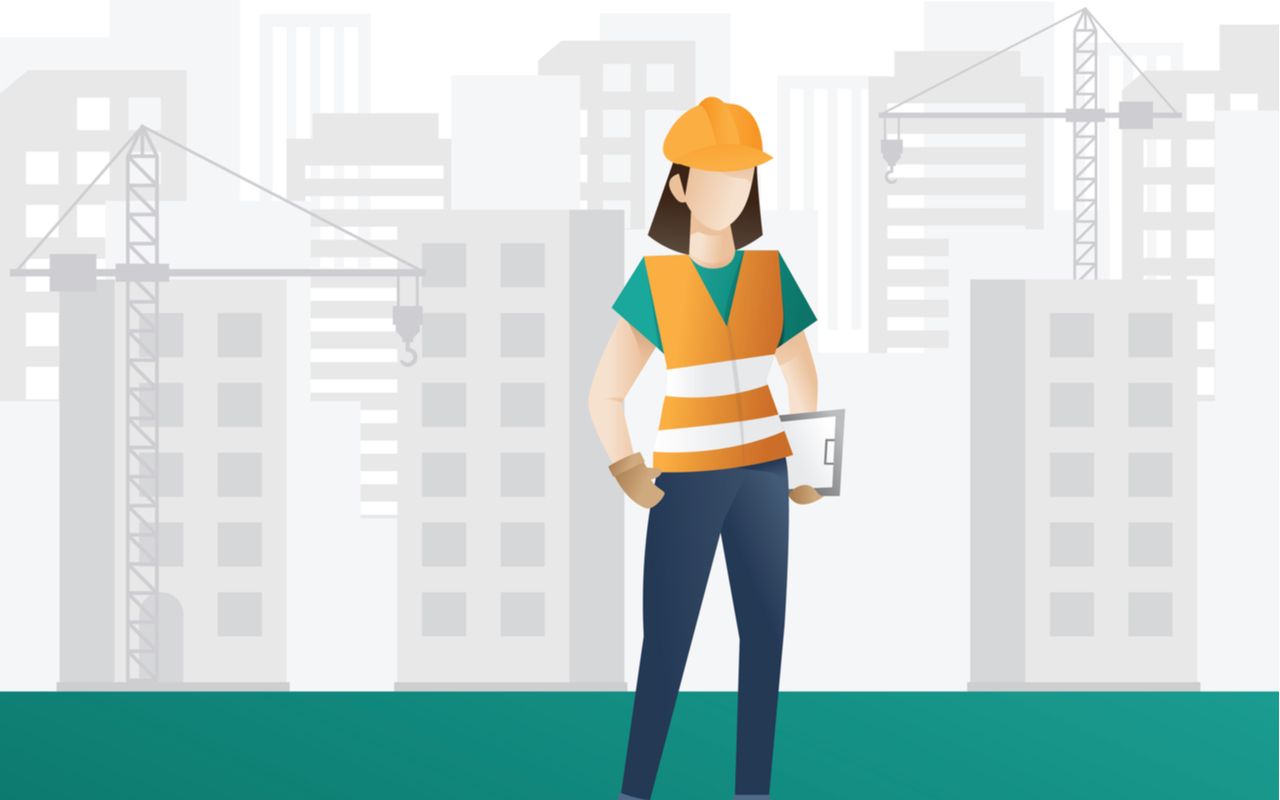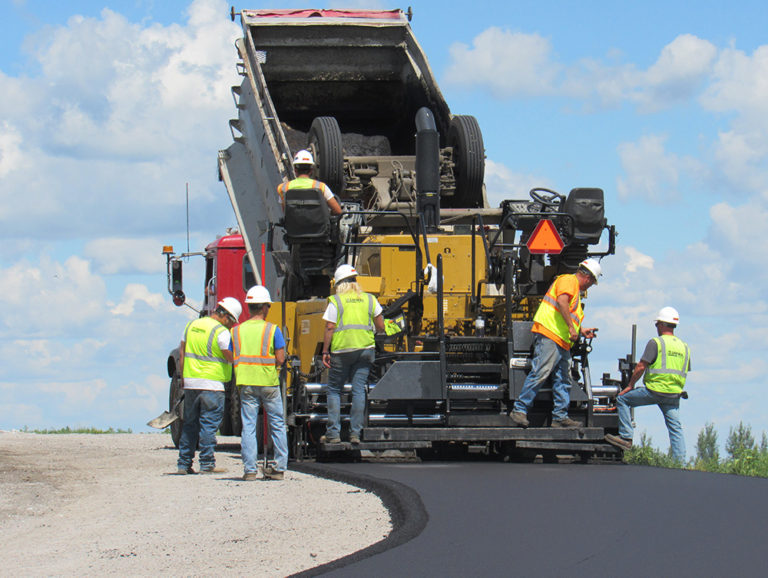It’s 2021, and women make up only about 10% of construction industry workers, even though they are 47% of the overall U.S. workforce. Although they are still a minority in the industry, they are making strides to break down barriers and become more of an influence in the industry.
In Levelset’s 2021 Women in Construction Survey, 1,001 women responded to questions about the state of women in the industry, how they’re perceived and the challenges they face working in a male-dominated industry. The respondents represented all different sizes of companies and work in a variety of positions in the industry.
Here’s what the women had to say about their opportunities for advancement, being heard by their coworkers and the pay gap.
Opportunities for advancement
According to the survey, 59% said fewer than one in 20 women are in leadership roles where they work. That translates to less than 5% of leaders in the construction industry being women.
Most women who work in the industry feel that they have an opportunity to advance in their current role, but there are 37% who say they don’t. Construction companies are often small or medium-size firms, so there aren’t many positions to go around, leaving less room for promotion.
“At all the jobs I have held in construction the opportunity to advance has been limited because the CFO has always been married to or has been somehow related to the owner of the company,” says an administrative assistant for a subcontractor in South Carolina. “It limits growth in the traditionally women-held jobs in construction.”
“The glass ceiling is very real for smart women in technical positions,” says a manager for a California-based general contractor.
However, there are some who have managed to make a way for themselves by filling a need in their company.
“If you are looking for advancement, figure out the holes—the tasks no one wants to do—and become an expert at them,” says a vice president at a Maryland-based general contractor. “Then learn the better tasks and become the best at those. Then turn around and find another woman looking for her opening and train your successor.”
“There is so much potential for growth,” says an office manager for a general contractor in Minnesota. “The industry is very behind in technology, but that’s been changing recently. There is also a lot of room, and I think a need for women in this industry. I personally bring both to the table and I love the groundbreaking aspect of being a part of that.”
Being heard
Overall, most women say coworkers and leaders are respectful toward them, and their ideas and opinions are generally considered.
“I believe that though we are not all the way there yet, women are respected in the construction field,” a lawyer for a Michigan-based contractor says.
However, only 65% believe that leadership listens to men and women equally. And when it comes to being respected on the job, one in three don’t feel respected or valued as much as their male coworkers.
“I am very good at my job and I do it well,” says one office administrator who works for a general contractor in Minnesota, “but in this industry, I am spoken to like a child a lot of the time. It’s assumed I don’t know what I’m doing and that is very frustrating. I love this industry and I see potential for so much growth and I really want to be a part of that, but it’s going to take a long time to shift the thinking that this is just a man’s industry.”
“Women have to prove themselves before they will be taken seriously,” says the president of a subcontracting company in Indiana, “whereas it is assumed men know what they are doing from the start.”
“I’m 6’2″ and I have to really demand the room for people to hear me,” says one estimator from Florida. “If I were a man, it’d just be given.”
Getting paid
The pay gap in the construction industry is the lowest of any U.S. industry, but that doesn’t mean that everyone gets paid the same. And it doesn’t mean that everyone thinks they’re getting paid the same.
Fifty-percent of respondents said they thought men and women were paid the same for the same type of work. Among non-executives, even fewer (43%) believe pay is equal.
It can be difficult to tell if workers are receiving equal pay for equal work because of the lack of transparency in pay rates.
One assistant project manager for a subcontractor in North Carolina said not knowing whether she’s paid fairly was a challenge. “I have no idea what anyone else in the same position in my company is paid,” she says.
Speaking out
Overall, the women who responded to the survey are glad to be working in the industry. They like the variety of the work and the fact that there are so many opportunities for women in the industry.
“I have been high-fived and applauded for choosing to pursue a career in this type [of] industry when so few women do,” says a project manager for a North Carolina subcontractor.
Surveys like this one highlight the distance we still have to go to make the construction industry welcoming to all. There is still a stigma to women working in the trades and being treated equally on the jobsite and in the office. Organizations like Women in the Trades and the National Association of Women in Construction (NAWIC) were started to help advance women in the industry, and they continue to achieve that goal.
NAWIC President Anne Pfleger recently stated, “construction is no longer a male-dominated industry, but a male-populated industry.”







